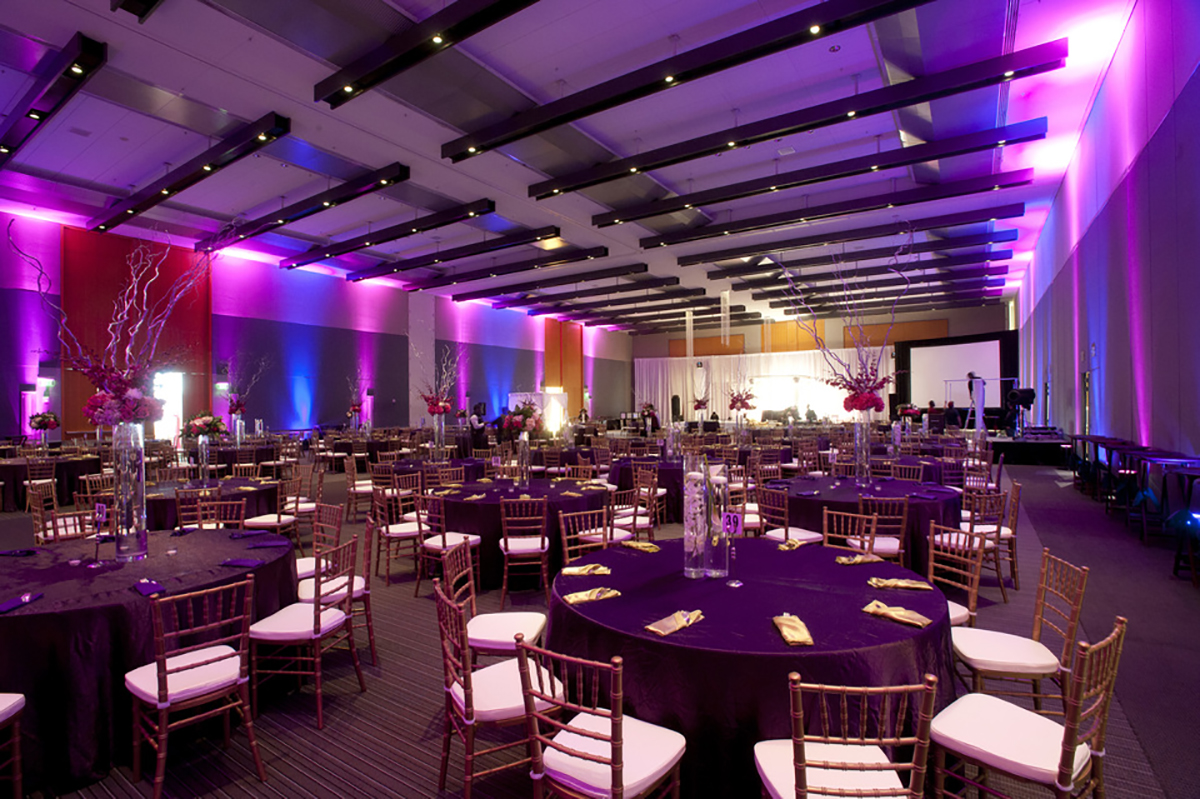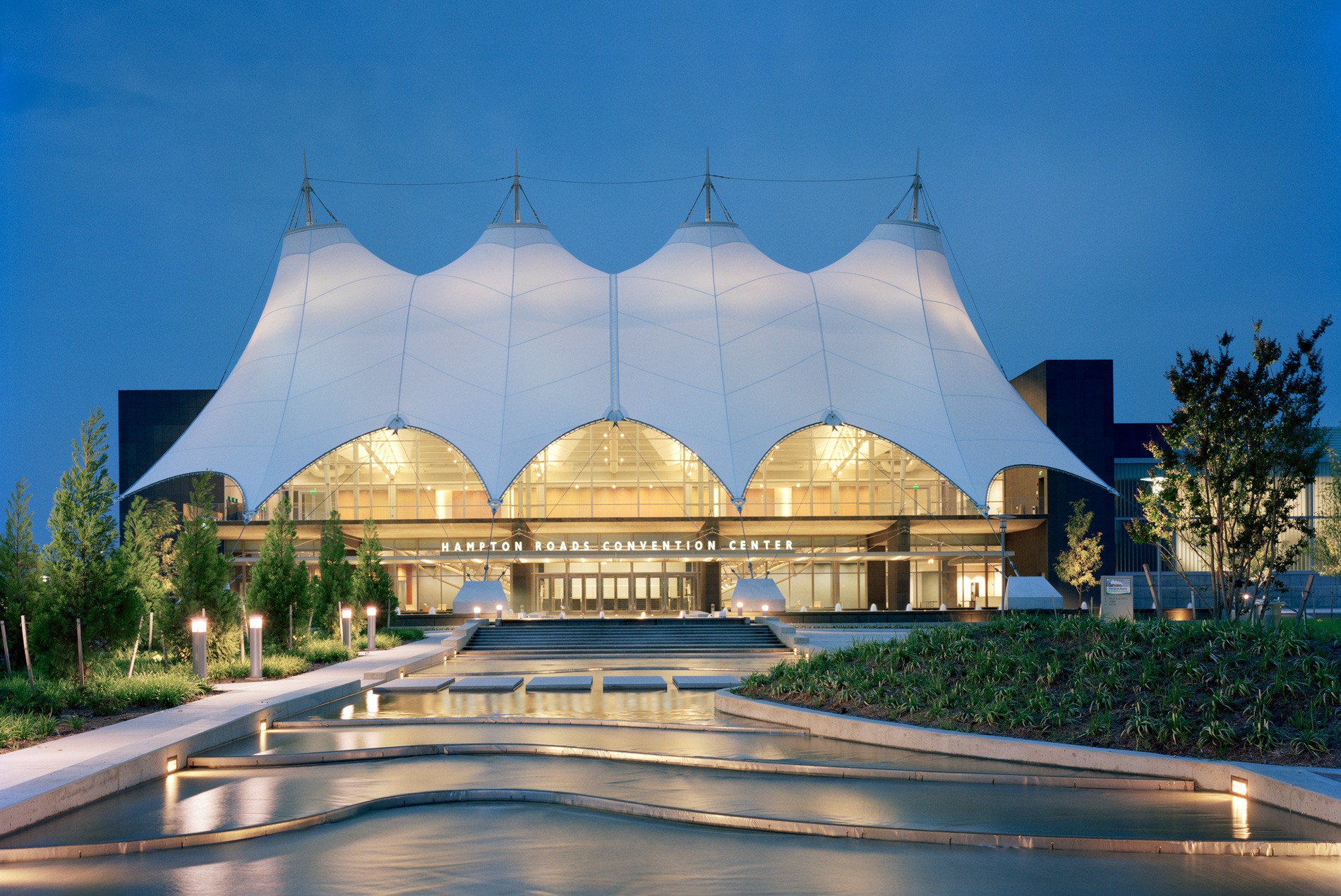Discover The Best: Hampton Roads Convention Center Events
Is the Hampton Roads Convention Center truly the cornerstone of economic vitality that it claims to be? Its sprawling presence in Hampton, Virginia, and the myriad of events it hosts, from bustling trade shows to intimate galas, undoubtedly make it a significant player in the region's landscape. But is its impact as profound, and its future as secure, as its promoters would have us believe?
The Hampton Roads Convention Center, a modern edifice of glass and steel, sits strategically positioned in Hampton, Virginia, a city steeped in history and embracing a dynamic future. Its existence is a direct response to the burgeoning need for a large-scale venue capable of accommodating the diverse demands of modern events. Conferences, trade shows, concerts, and banquets the center has been meticulously designed to cater to them all. The architectural design, with its high ceilings, flexible spaces, and state-of-the-art technology, is meant to facilitate seamless execution of events of varying sizes and complexity. The goal, as outlined in its initial blueprints, was to transform the landscape, attracting visitors and investment to the region. Now, several years after its inception, the impact of the Hampton Roads Convention Center can be assessed and weighed.
The creation of the center was predicated on the economic promise it held. The argument was simple: a state-of-the-art convention center would attract business travelers and tourists, injecting capital into the local economy through hotel bookings, restaurant visits, retail spending, and increased tax revenue. The city, and indeed the wider Hampton Roads area, would benefit from a sustained influx of external funds. The center was also designed to be a catalyst for job creation, both in its direct operations and in the ancillary services required to support its events, from catering and security to transportation and marketing. The success of the center was seen as a crucial element in the ongoing revitalization efforts of the city of Hampton, which, like many coastal areas, was seeking ways to diversify its economy and lessen its reliance on defense spending.
To understand the center's current role, one must examine the events that make up its annual calendar. These events range from regional and national trade shows, bringing in hundreds of exhibitors and thousands of attendees, to local community gatherings, showcasing arts, crafts, and community initiatives. Large-scale concerts and performances also grace the center's stages, drawing audiences from across the state and beyond. The diverse range of events underscores the center's versatility, and its ability to appeal to various demographics. The ability of the venue to transform its layout and internal configurations, allowing for small and large events is a key selling point, demonstrating an adaptability that sets it apart from smaller, more rigid event spaces. These adaptations are crucial in attracting new business and allowing the venue to secure the long-term success it was built for.
However, the picture is not without its complexities. The convention center industry is a competitive arena, with destinations across the country vying for the same events and the same attendees. Competition is fierce, and success is often dependent on a delicate balancing act between pricing, quality of service, location, and marketing. The Hampton Roads Convention Center must consistently evaluate its offerings, and adapt its strategy to stay ahead of the curve. The economic climate, fluctuations in travel patterns, and the changing preferences of event organizers all influence the centers performance, creating both opportunities and challenges for its management and its stakeholders. It is also subject to the economic health of the broader national and international economies, with downturns potentially impacting the number of events and the level of attendance. The challenges, as much as the successes, must be considered to assess the centers long-term sustainability and its ongoing value to the community.
The physical location of the Hampton Roads Convention Center is also worth considering. Hampton Roads, as a region, offers numerous advantages as a location. It has excellent road and air connections, and its proximity to major metropolitan areas along the Eastern Seaboard allows for accessibility. Its waterfront location and historical significance, as the site of the first permanent English settlement, are attractive to tourists, and could potentially enhance the center's appeal. However, the area also faces its own set of challenges, including traffic congestion, the impact of coastal erosion, and the need for continued investment in infrastructure. The location of the center and the surrounding infrastructure should be carefully evaluated when considering its long-term outlook, and the impact that it has on the overall economy of the city.
The economic impact of the Hampton Roads Convention Center is frequently measured through a variety of metrics. These include the number of events hosted annually, the number of attendees drawn to the center, the direct spending generated by those attendees, and the indirect impact on the local economy, such as the demand for lodging, food, and transportation. Another indicator is the center's ability to generate revenue, both through event bookings and through its own operations, and its contribution to local tax bases. This data, when carefully compiled and analyzed, allows for a more informed assessment of the center's performance and its true economic value to the community. The metrics provide a glimpse into the overall economic impact and allow stakeholders to plan for the future.
The influence of the Hampton Roads Convention Center stretches beyond mere numbers. Beyond the economic benefits, the center can significantly enhance the region's image and attractiveness as a destination. By showcasing the area's amenities and the hospitality of its residents, the center plays an important role in attracting new residents, businesses, and investments. For example, the events hosted by the center can serve as a platform for local businesses, providing them with opportunities to network, showcase their products and services, and engage with potential customers. It can encourage the expansion of related industries, such as hotels and restaurants, generating more jobs and boosting the economy. The convention center can also enhance the overall quality of life for residents. It is a venue for community events, such as concerts, festivals, and fairs, creating social opportunities and strengthening social connections. These interactions enhance the vibrancy of the region and improve its reputation for tourism, thus enhancing the overall experience for everyone.
The Hampton Roads Convention Center's operational strategies must also be looked at. The center has invested in an experienced management team to oversee operations, sales and marketing, and to coordinate and deliver services for events. Their experience in the convention and hospitality industry is essential for meeting the diverse requirements of event organizers and attendees, ranging from technical support to catering and event execution. In addition to these functions, the center must also allocate resources to ensure that its facilities are up-to-date, meeting the latest industry standards for technology and safety. The center must also proactively seek to attract new business and maintain relationships with existing clients. Furthermore, the center's success hinges on its ability to meet the diverse needs of its clients while remaining competitive in an ever-changing market.
Looking to the future, several factors will be important to the continued success of the Hampton Roads Convention Center. The center must maintain a strong focus on customer satisfaction, providing event organizers and attendees with a positive experience. This will require ongoing investments in facility maintenance, technological upgrades, and staff training, as well as a continuous effort to adapt to changing event trends. The center must also work collaboratively with local businesses and community organizations, fostering partnerships that enhance its appeal and generate economic growth. As the world continues to evolve, the Hampton Roads Convention Center must demonstrate its versatility and adapt to remain an important player in the Hampton Roads landscape, and position itself for long-term success. A long-term plan should be in place, outlining strategies for growth, sustainability, and continued contribution to the local economy.
The Hampton Roads Convention Center's success is interwoven with that of Hampton and the wider Hampton Roads area. If the center is able to adapt to changing times, invest in its infrastructure, and align its goals with those of the surrounding community, it is positioned to remain a vital asset. However, the challenges and opportunities confronting the center are ongoing. As such, the question remains whether it will continue to flourish, or if its success will ultimately prove elusive. The future of the Hampton Roads Convention Center serves as a microcosm of the broader economic and cultural shifts occurring throughout the United States.
| Aspect | Details |
|---|---|
| Location | Hampton, Virginia |
| Opened | [Insert Opening Date or Year Here] |
| Size (Gross Square Footage) | [Insert Total Square Footage Here] |
| Exhibit Space | [Insert Square Footage of Exhibit Space Here] |
| Meeting Rooms | [Insert Number of Meeting Rooms Here] |
| Ballroom Capacity | [Insert Ballroom Capacity Here] |
| Key Events Hosted | Trade shows, conferences, concerts, banquets, community events. |
| Primary Economic Impact | Tourism, hotel bookings, restaurant visits, retail spending, tax revenue, job creation. |
| Management | [Insert Name of Management Company or Individuals Here] |
| Website | Official Website of Hampton Roads Convention Center |

Hampton Roads Convention Center

Photos Hampton Roads Convention Center Hampton Roads Convention Center

Hampton Roads Convention Center HOK